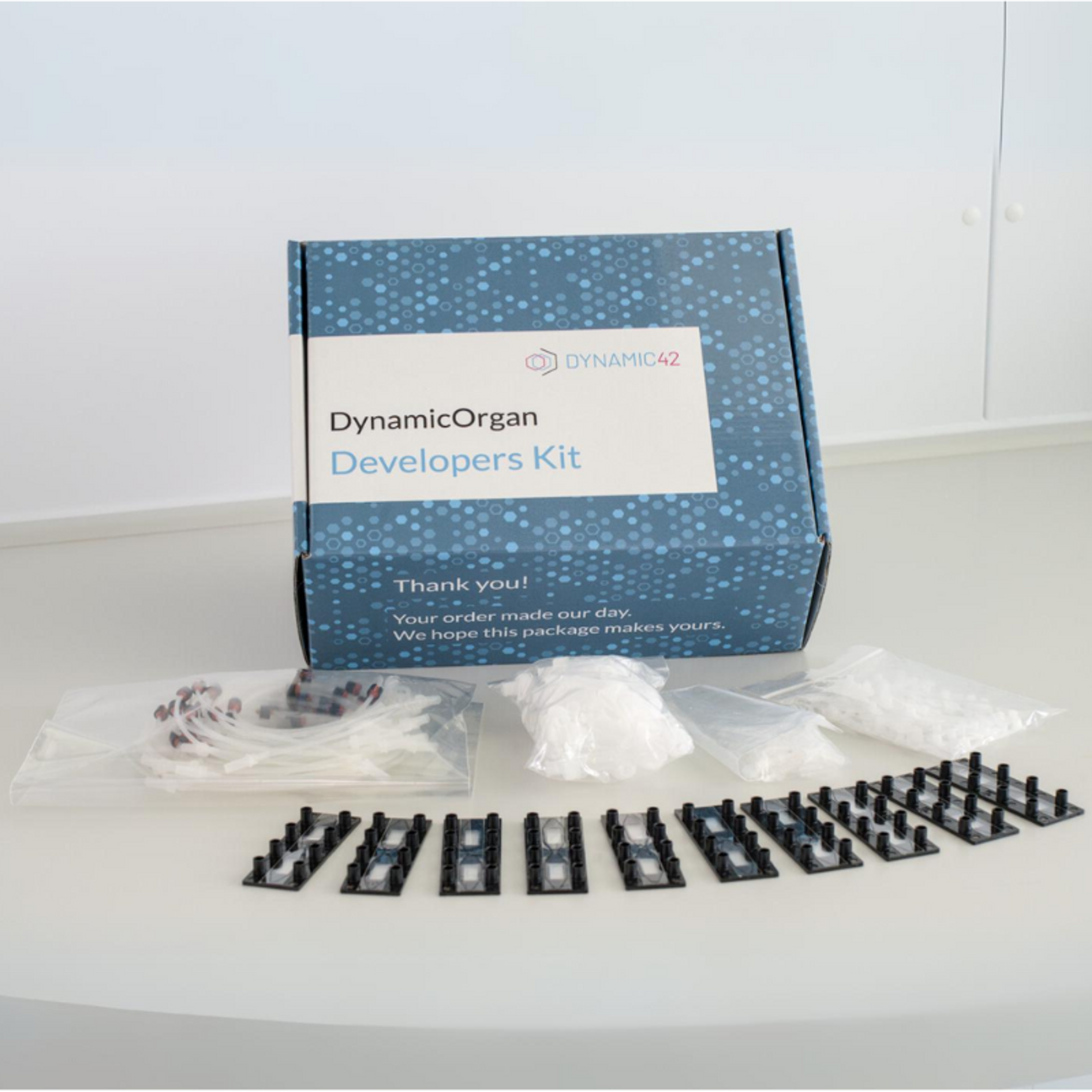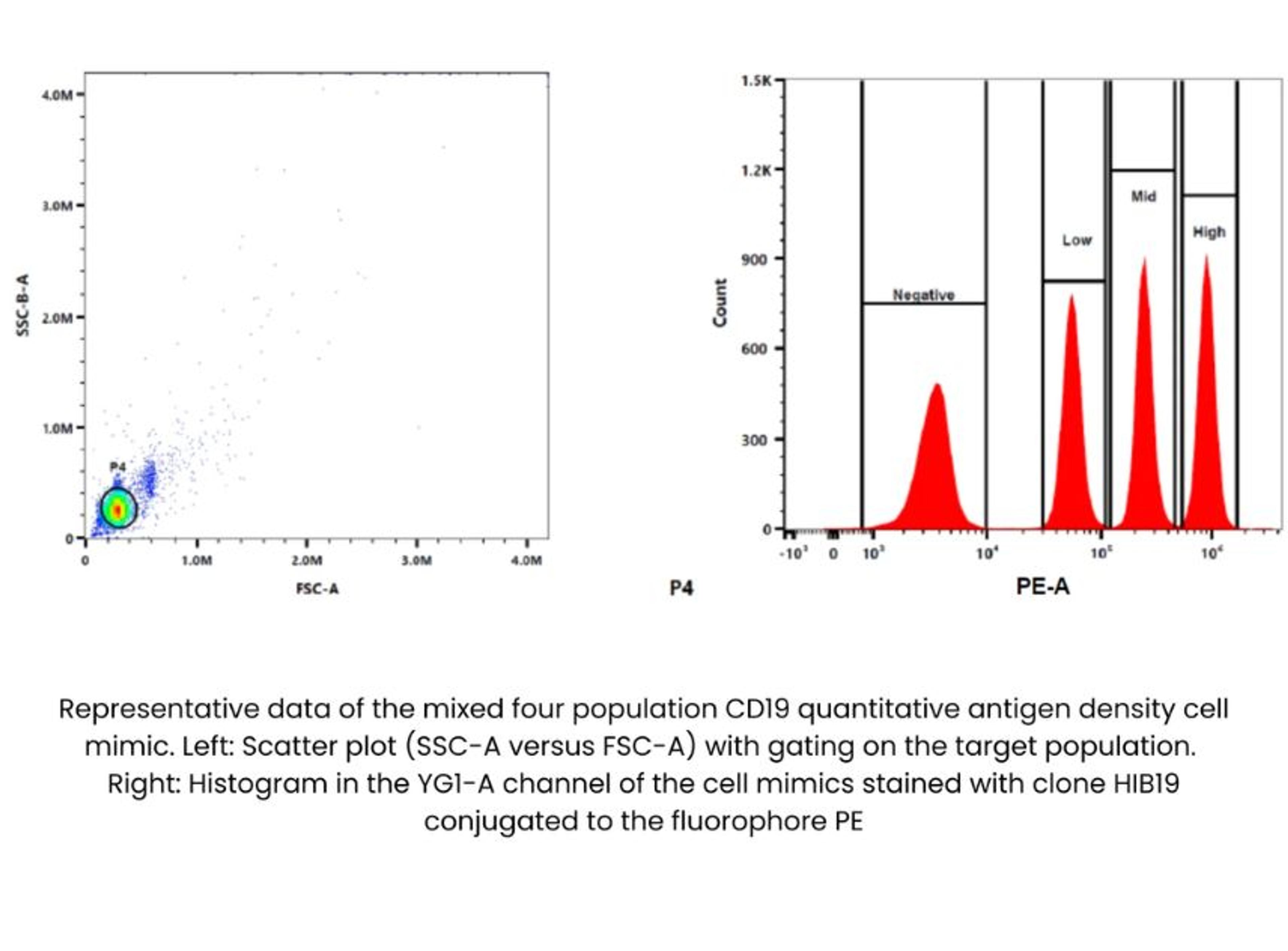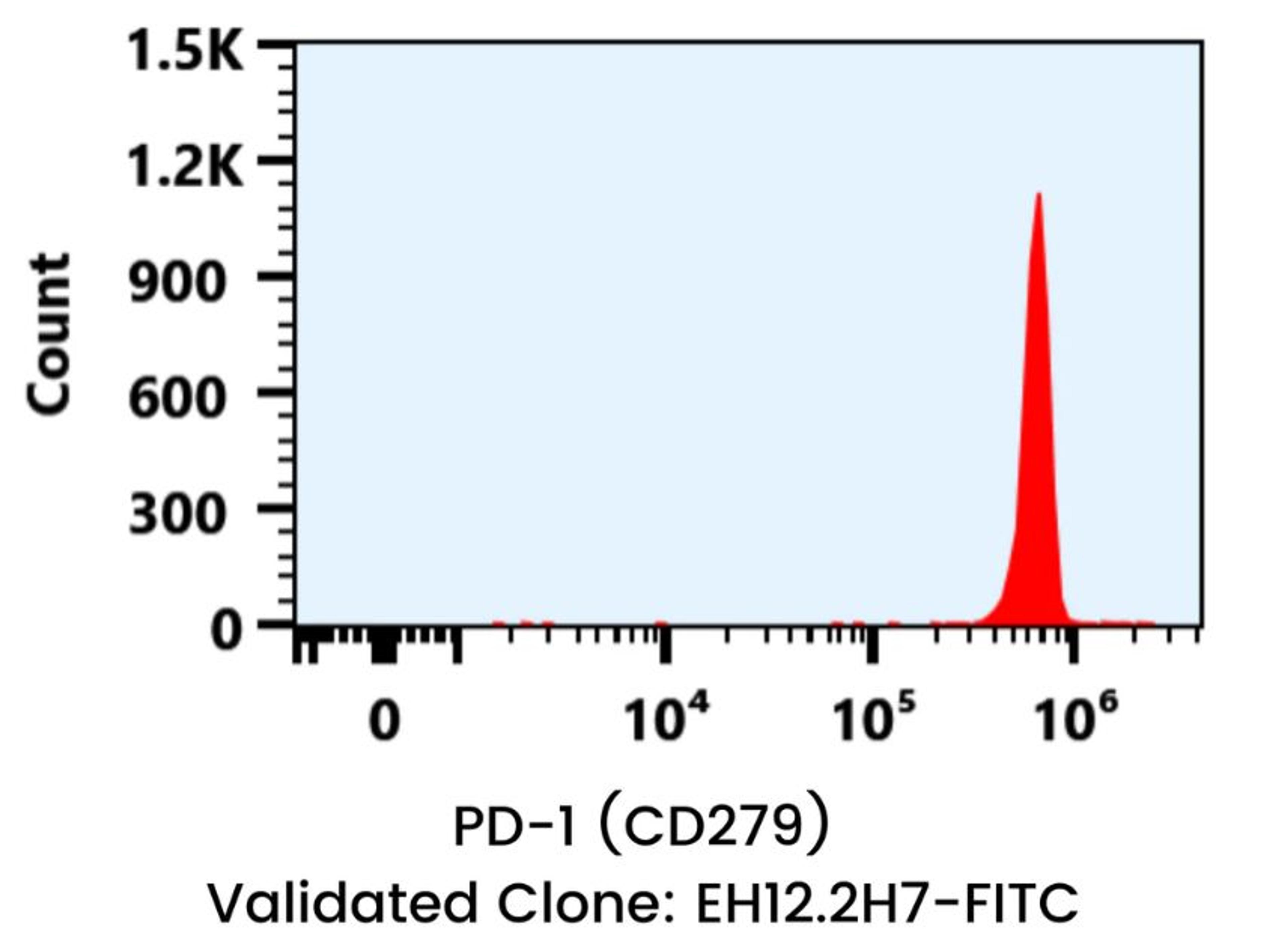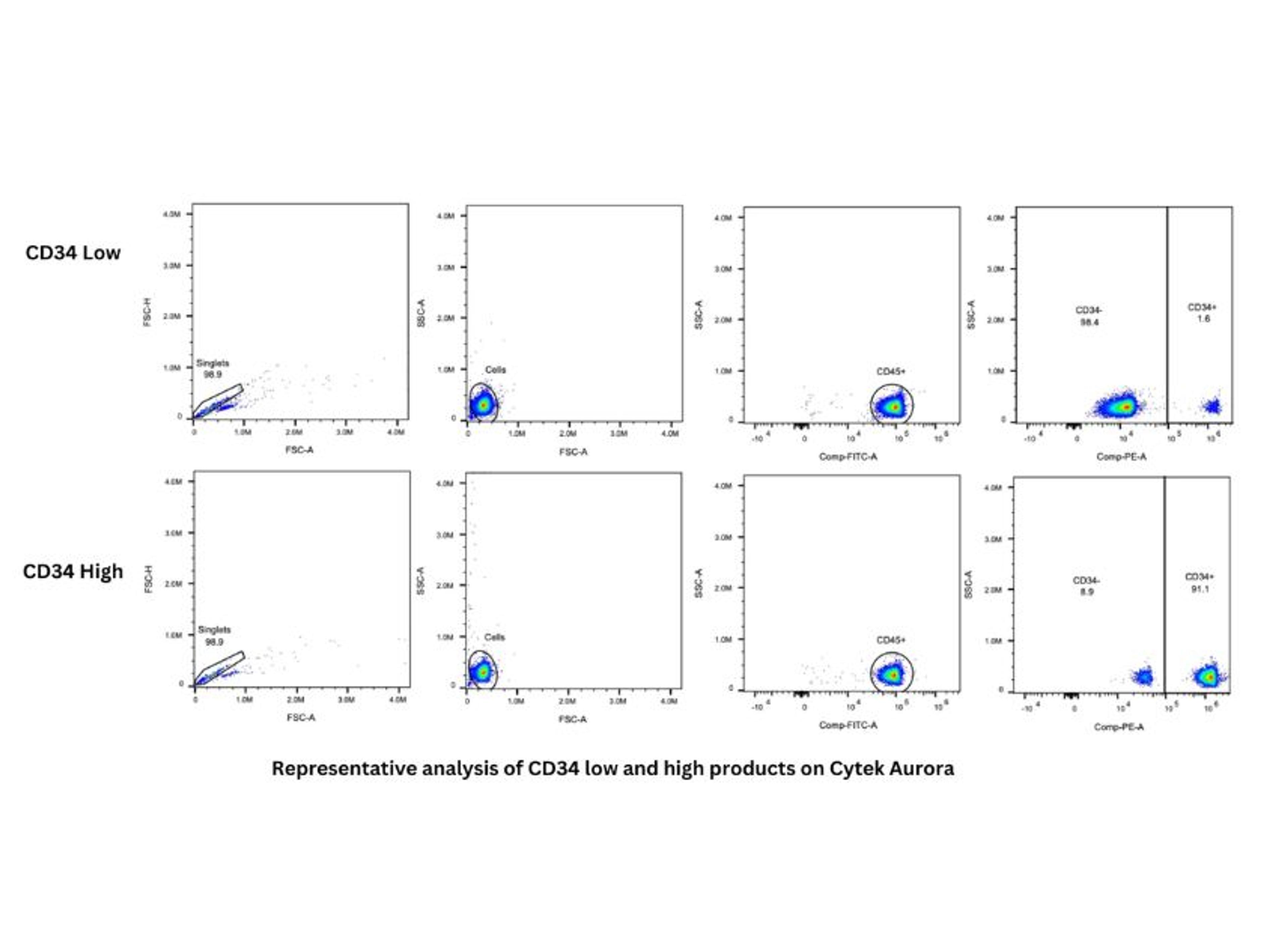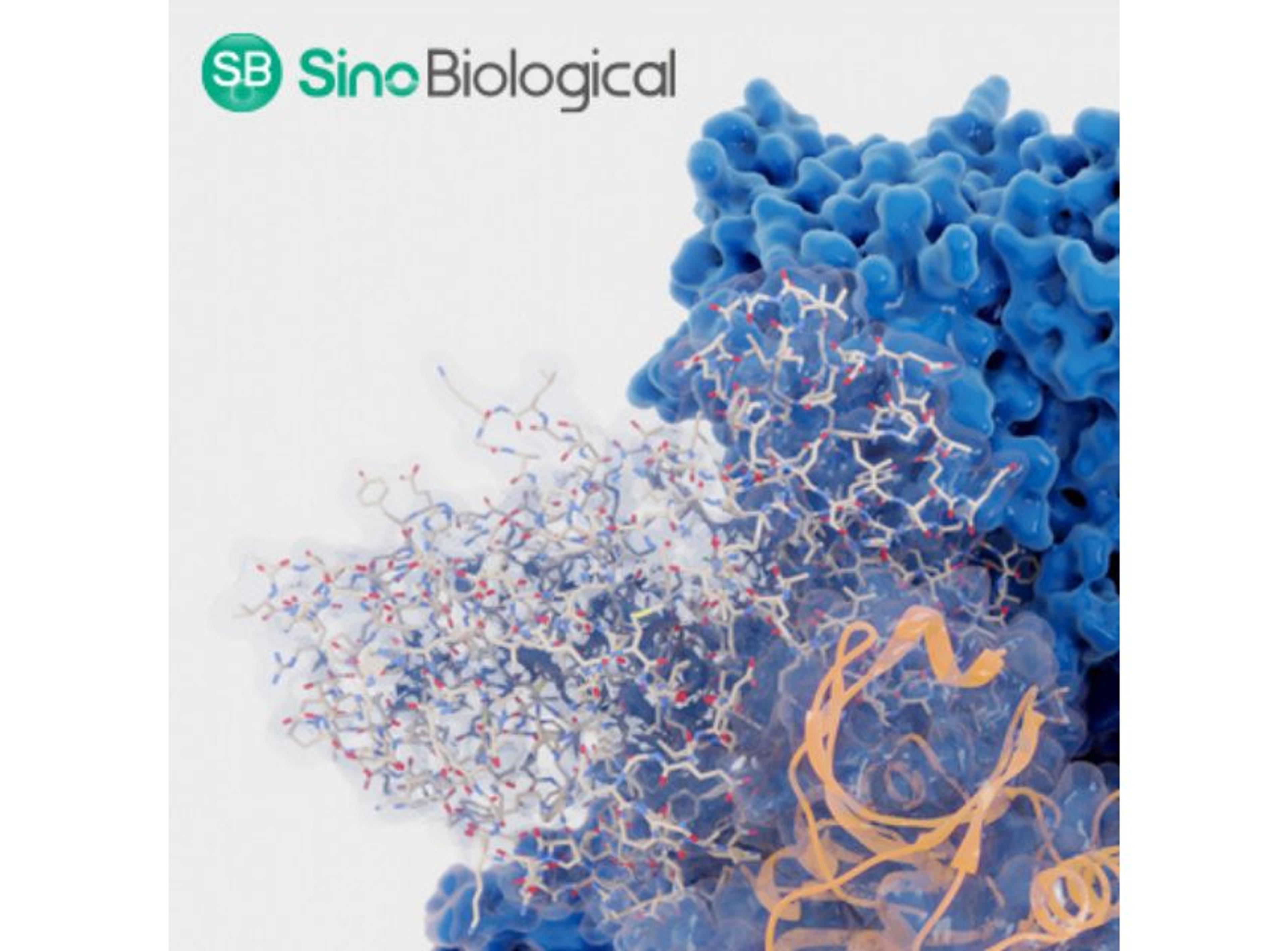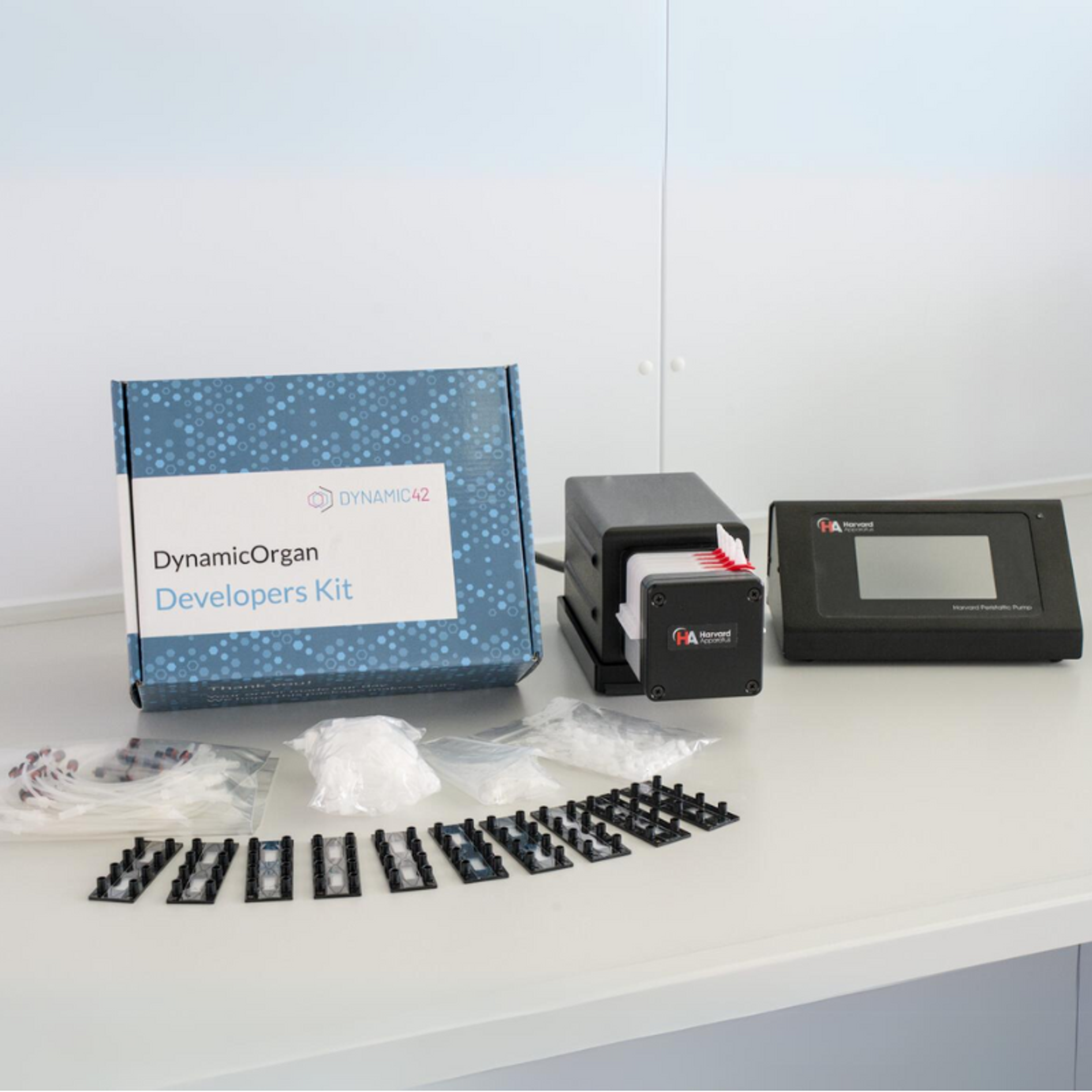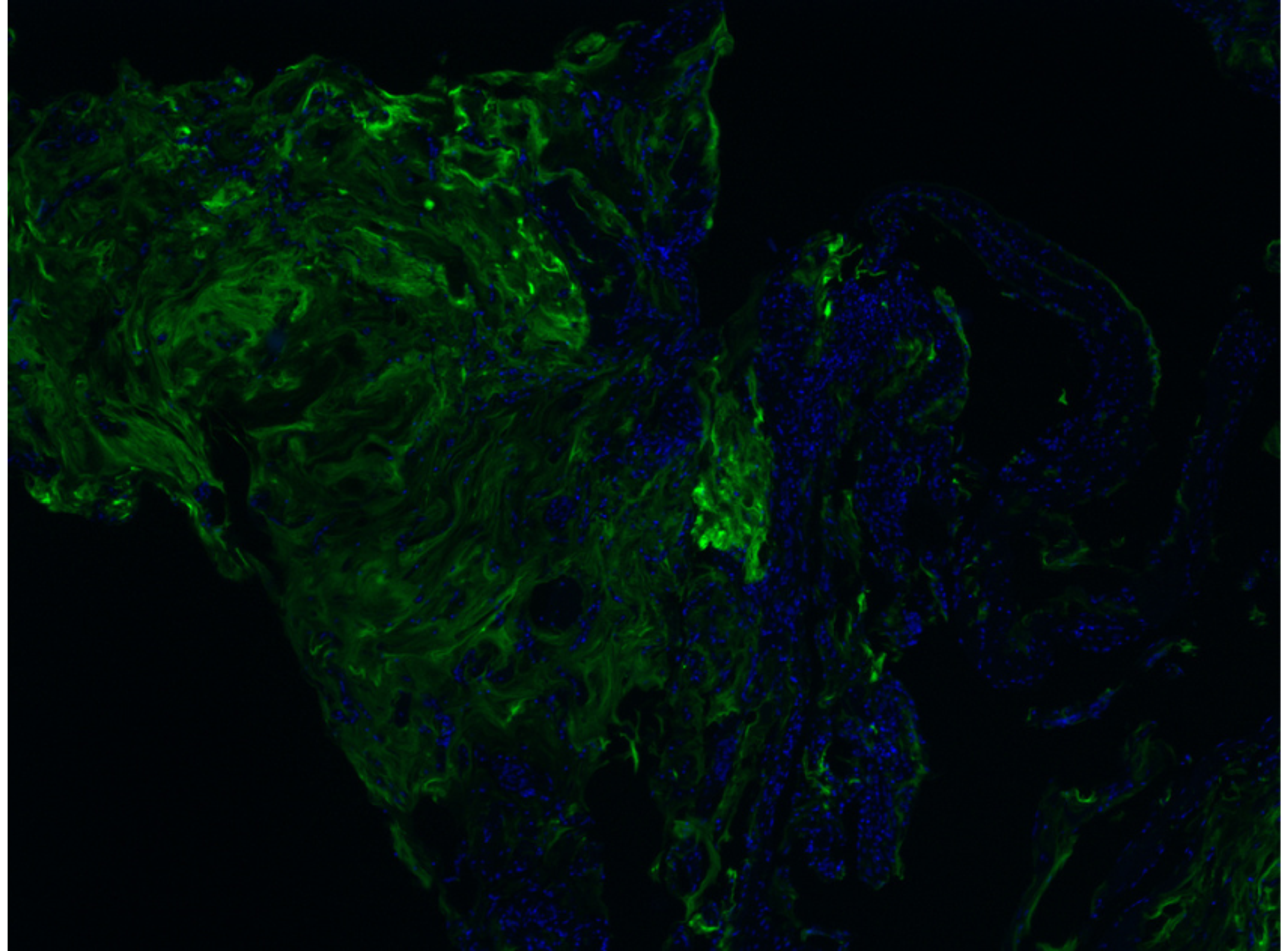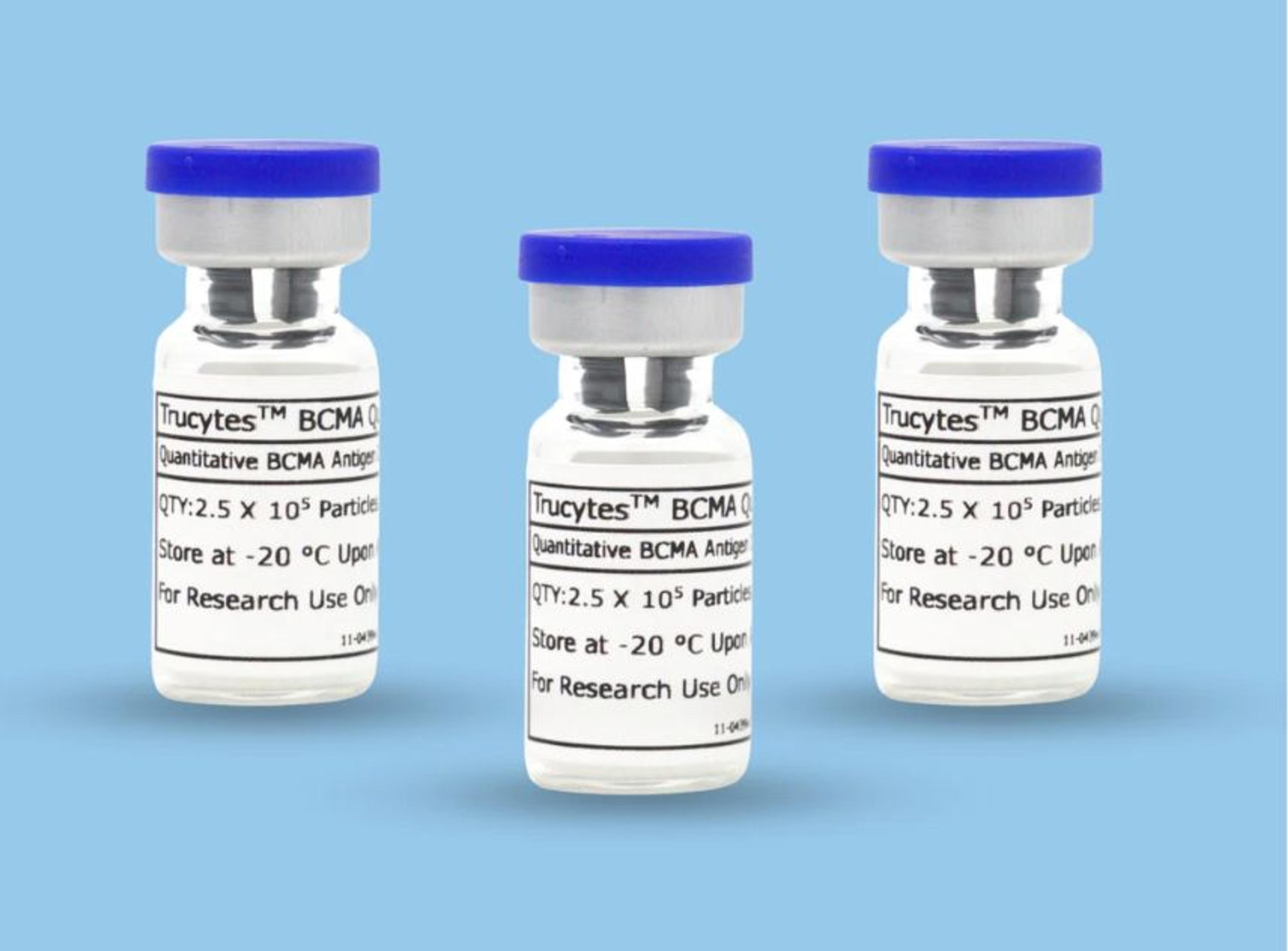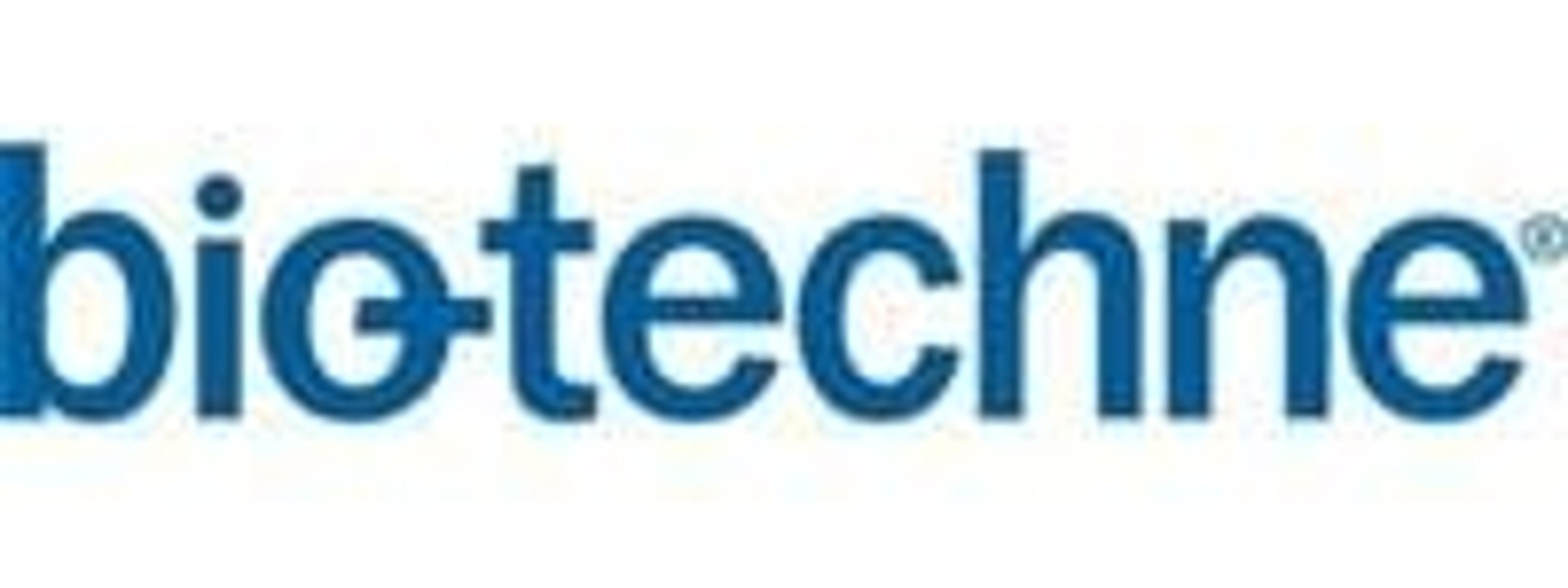Cell-Based Assays Products & Reviews
Cell-based assays are used to monitor the presence, quantity and activities of a desired cellular analyte including drug molecules or biomarkers. This can reveal information on cell health (apoptosis, cytotoxicity, viability and proliferation assays), cell metabolism, cell migration and cell signaling mechanisms. Find the best cell-based assay products, kits and equipment with our peer reviewed product directory: compare products, check customer reviews and receiving pricing direct from manufacturers.
Selected Filters:
Slingshot Labs Single Biomarkers
Slingshot BiosciencesThese ready-to-use single positive biomarker controls are the latest and greatest from the Slingshot Team.
Enzyme Modulators
Sino BiologicalSignalChem(part of Sino Biological) offers one of the most comprehensive ranges of biologically active recombinant enzymes as well as a broad range of high-quality, low-cost enzyme activators and inhibitors of different classes of enzymes including protein kinases, phosphatases, and epigenetic enzymes.
Purified Antibodies
MerckPurified antibodies are indispensable in spatial biology, providing unparalleled detail in cellular and molecular structure characterization. Our high-quality purified antibodies offer exceptional specificity, sensitivity, and reproducibility for diverse applications, from basic research to clinical diagnostics. Moreover, our purified carrier-free antibodies are ready to conjugate (RTC), streamlining your workflow.
Mosaic™ ELISA Human Growth Factor Panel 1
Bio-TechneThe Mosaic ELISA Human Growth Factor Panel 1 is an excellent tool for the detection of 6 different growth factors in the same sample. Mosaic ELISA kits employ multiplex microarray technology to provide an accurate, efficient, and economical alternative to conducting multiple traditional ELISA experiments. Growth factor is a term used to describe a broad range of structurally diverse molecular families and individual proteins b…
Mosaic™ ELISA Human Cytokine Panel 1
Bio-TechneThe Mosaic ELISA Human Cytokine Panel 1 is an excellent tool for the detection of 8 different cytokines in the same sample. Mosaic ELISA kits employ multiplex microarray technology to provide an accurate, efficient, and economical alternative to conducting multiple traditional ELISA experiments. Cytokines are pleiotropic extracellular signaling molecules that influence myriad physiological and pathological processes. Released…
ES Cell Characterization Kit
MerckCHEMICON's ES Cell Characterization Kit (Catalog number SCR001) is a specific and sensitive tool for the phenotypic assessment of the differentiation status of ES cells by measuring their AP activity, cell-surface stage-specific antigens (SSEA-1, SSEA-4) as well as expression of TRA-1-60, TRA-1-81 antigens.
ES Cell Marker Sample Kit
MerckThe ES Cell Marker Sample Kit includes six monoclonal antibodies for the analysis of ES cell marker expression. CHEMICON®'s ES Cell Marker Sample Kit (Catalog number SCR002) contains monoclonal antibodies for the detection of the cell-surface Stage-Specific Embryonic Antigens (SSEA-1, SSEA-3 & SSEA-4), expression of TRA-1-60, TRA-1-81 antigens and Oct-4. This kit permits the phenotypic analysis of the differentiation status of…
Alkaline Phosphatase Detection Kit
MerckEMD Millipore's Alkaline Phosphatase Detection Kit is a specific and sensitive tool for the phenotypic assessment of ES cell differentiation by the determination of AP activity.
Mesenchymal Stem Cell Characterization Kit
MerckEMD Millipore's Mesenchymal Stem Cell Characterization Kit (Catalog Number SCR018) contains a panel of positive and negative selection markers for the characterization of the mesenchymal stem cell population in rat. Positive cell markers include antibodies directed against cell-surface molecules (integrin beta1 and CD54) (Pittenger, M. F., and Marshak, D. R., & Pittenger, M.F., et al.) present on mesenchymal stem cells along w…
Pancreatic Islet Cell Characterization Kit
MerckThe Pancreatic Islet Cell Characterization Kit (SCR045) provides a convenient set of validated antibodies that allows researchers to reliably identify mature pancreatic islets cells. Along with antibodies generated against discrete hormones secreted by alpha, beta, delta and gamma cells of the pancreatic islets, the kit includes PDX-1 (pancreatic duodenal homeobox gene-1), a master regulator of islet cell development and GLUT-…
H2A.X Phosphorylation Assay Kit (Flow Cytometry)
MerckThe H2A.X Phosphorylation Assay Kit (Flow cytometry) is a cell based assay formatted for flow cytometric detection of levels of phosphorylated Histone H2A.X. Cells are cultured in microplates, treated with agents that induce DNA damage or apoptosis, which stimulates H2A.X phosphorylation. Cells are then fixed and permeabilized in preparation for staining and detection. Histone H2A.X phosphorylated at serine 139 is detected by…
ArthroMAB; Kit, ten mice
MerckCollagen-induced arthritis (CIA) in mice is widely used as an experimental model for rheumatoid arthritis (RA) in humans. CIA is mediated by autoantibodies, which bind to a particular region of type II collagen, such as CB11 (CNBR-digested fragment of type II collagen) (Terato et al, 1985). Antibody-mediated CIA can be induced by i.v. injection of a combination of four different monoclonal antibodies generated by the ArthroMAB…
ArthroMAB; Kit, 25 mice
MerckCollagen-induced arthritis (CIA) in mice is widely used as an experimental model for rheumatoid arthritis (RA) in humans. CIA is mediated by autoantibodies, which bind to a particular region of type II collagen, such as CB11 (CNBR-digested fragment of type II collagen) (Terato et al, 1985). Antibody-mediated CIA can be induced by i.v. injection of a combination of four different monoclonal antibodies generated by the ArthroMAB…
ArthroMAB; Kit, 100 mice
MerckCollagen-induced arthritis (CIA) in mice is widely used as an experimental model for rheumatoid arthritis (RA) in humans. CIA is mediated by autoantibodies, which bind to a particular region of type II collagen, such as CB11 (CNBR-digested fragment of type II collagen) (Terato et al, 1985). Antibody-mediated CIA can be induced by i.v. injection of a combination of four different monoclonal antibodies generated by the ArthroMAB…
QCM Chemotaxis Cell Migration Assay, 24-well (3 μm), fluorimetric
MerckThe CHEMICON® QCM™ Chemotaxis 3 μm 24-well Migration Assay is performed in a Migration Chamber, based on the Boyden chamber principle. The 3 μm pore size of this assay's Boyden chambers is appropriate for studyingleukocyte migration. The quantitative nature of this assay is useful for screening of pharmacological agents. Each kit provides sufficient materials for the evaluation of 24 samples. The Chemicon QCM™ Chemotaxis 3 μm…
QCM Chemotaxis Cell Migration Assay, 24-well (5 μm), colorimetric
MerckThe EMD Millipore 5 µm QCM™ Chemotaxis Assay 24-well- colorimetric utilizes a 5 µm pore size, which is appropriate for a subset of fibroblast cells or cancer cells such as NIH-3T3 and MDA-MAB 231 cells. Cells migrated toward chemoattractants were measured by crystal violet, a nucleic dye, and quantified by spectrophotometers. The system may be adapted to study different types of cell migration, including haptotaxis, random mig…
QCM Chemotaxis Cell Migration Assay, 24-well (5 μm), fluorimetric
MerckThe CHEMICON® QCM™ Chemotaxis 5 μm 24-well Migration Assay is performed in a Migration Chamber, based on the Boyden chamber principle. The 5 μm pore size of this assay's Boyden chambers is appropriate for studying monocyte/macrophage migration. The quantitative nature of this assay is useful for screening of pharmacological agents. Each kit provides sufficient materials for the evaluation of 24 samples. The Chemicon QCM™ Chemo…
QCM Chemotaxis Cell Migration Assay, 24-well (8 μm), colorimetric
MerckThe CHEMICON® QCM™ 24-well Cell Migration Assay (ECM508) eliminates cell pre-labeling and manual counting. The 24-well insert and colorimetric detection format allows for quantitative comparison of multiple samples. The CHEMICON® QCM™ 24-well Cell Migration Assay is performed in a Migration Chamber, based on the Boyden chamber principle. Each kit contains 24 inserts; each insert utilizes an 8 mm pore size polycarbonate membran…
QCM Chemotaxis Cell Migration Assay, 24-well (8 μm), fluorimetric
MerckThe CHEMICON® QCM™ 24-well Cell Migration Assay does not require cell labeling, scraping, washing or counting. The 24-well insert and homogenous fluorescence detection format allows for large-scale screening and quantitative comparison of multiple samples. The CHEMICON® QCM™ 24-well Cell Migration Assay is performed in a Migration Chamber, based on the Boyden chamber principle. Each kit contains 24 inserts; each insert utilize…
QCM Chemotaxis Cell Migration Assay, 96-well (8 μm), fluorimetric
MerckThe Chemicon QCM™ 96-well Migration Assay is ideal for the study of chemotaxis cell migration. The quantitative nature of this assay is especially useful for large scale screening of pharmacological agents. The 8 μm pore size of this assay's Boyden chambers is appropriate for migration studies of most cell types. Each kit provides sufficient materials for the evaluation of 96 samples. The Chemicon QCM™ 96-well Migration Assay…

